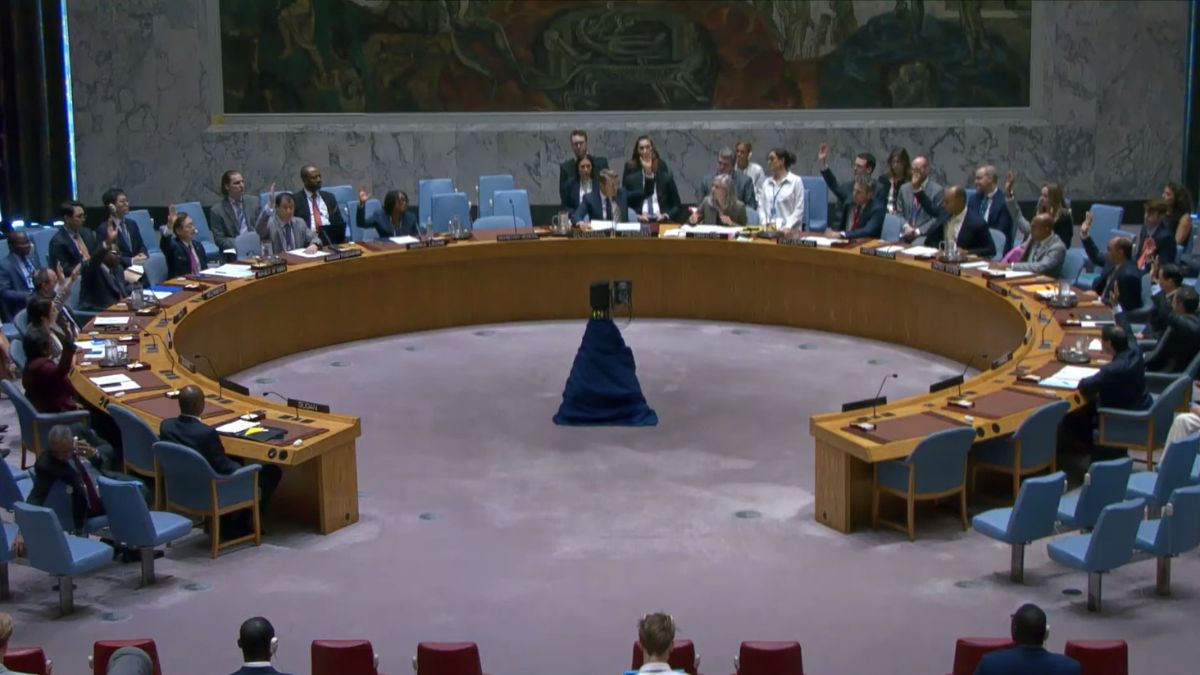All 15 members of the United Nations Security Council (UNSC) on Wednesday (September 11) agreed to renew the sanctions levied on Sudan for a year.
This means that the arms embargo, assets freezes, and travel bans will continue till September 12, 2025.
The International Fact-Finding Mission for Sudan, in its report submitted on September 5, had recommended expanding the existing arms embargo in the western Sudanese region of Darfur throughout the country. The aim with this would be “to stem the supply of weapons, ammunition, and other logistical or financial support to the warring parties and prevent further escalation”.
The idea was raised during the negotiations by France, but was dropped after strong opposition from China and Russia. Moscow had said that “any new restrictions imposed by the Council, including the possible expansion of the sanctions regime beyond Darfur, will not help to bring peace any closer to the region”.
At the highest echelons of power in the most well-known international organisation in the world, countries continue to rely on sanctions that have been in place for nearly two decades to slow down the civil war. Meanwhile, the suffering of people on the ground continues to rise.
The conflict, which has now spread to 14 of Sudan’s 18 states, has displaced millions and caused immense suffering for civilians.
Forced displacements
According to an update by the UN High Commission for Refugees (HCR) released on Monday (September 9), 10.4 million people have been forcibly displaced because of the conflict in Sudan since April 2023. This includes 8 million individuals displaced internally and 2.2 million forced to seek refuge in neighbouring countries.
Impact Shorts
More ShortsSouth Sudan, the nation closest to areas hardest-hit by the civil war, has seen the largest number of forcefully displaced peoples’ arrivals. Currently, there are nearly 800,000 displaced Sudanese people in South Sudan. Over 640,000 people have arrived in Chad, which lies to the west of Sudan and shares its border with the Darfur region. Egypt, lying north of the war-torn country, has seen 500,000 new arrivals so far.
Even Uganda, which does not share a border with Sudan, has seen over 55,000 Sudanese refugees pouring in via South Sudan.
“Sudan and neighbouring countries were already hosting large refugee populations before this new emergency and require additional support to provide protection and critical life-saving assistance, including for those who have been secondarily displaced within Sudan,” the UNHCR report said.
Urgent needs in the region include water, food, shelter, health, and core relief items. The current priority activities include registering new arrivals, relocating people away from border areas, identifying especially vulnerable families and individuals with specific needs, and establishing mechanisms to prevent and address gender-based violence.
Additionally, ensuring alternative care services for unaccompanied refugee children is a priority.
Child soldiers, sexual slaves, and ethnic cleansing
The Rapid Support Forces (RSF), a paramilitary force that evolved from the Janjaweed militias and is the major combatant in the conflict opposite the Sudanese Armed Forces (SAF), has been accused of recruiting child soldiers.
Both SAF and RSF’s involvement in sexual violence, including rape and sexual slavery, have been reported.
Additionally, the RSF has been accused of targeted violence against certain ethnic groups, particularly the Masalit community in West Darfur. The report by the International Fact-Finding Mission for Sudan has documented incidents of rape, torture, and destruction of property carried out by the RSF and allied militias.
The UN’s findings indicate that the actions of both the SAF and RSF may amount to war crimes, particularly concerning attacks that have caused extensive harm to civilians.
Attention from the international community is limited, as are donations towards the humanitarian cause in Sudan. The general populace remains caught in the crossfire, with the scale of human suffering growing by the day.
)